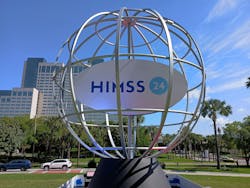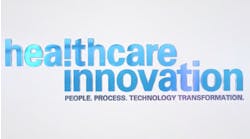One thing that healthcare executives agreed upon during a panel on March 12 is that generative artificial intelligence (GenAI) is the subject of much hype. On Tuesday, several panelists discussed GenAI, its integration, and its outlook at the annual HIMSS conference held in Orlando this year.
The panel’s moderator, Sumit Ganguli, CEO of GS Lab | GAVS Technologies, has worked with AI for six years. He started the discussion by stating that it’s important to anchor the panel’s speakers, such as where they are coming from and whether there may be a bias, conscious or unconscious.
When asked about AI, Deb Muro, CIO for El Camino Hospital, who has a nursing background, responded that she loves the intersection between nursing and technology. “It’s a magical space,” she said. Then she added, “In healthcare, we are not very predictive; we are reactive.” Muro suggests that healthcare leaders need to talk about how to evolve AI and how to be predictive in health outcomes.
“AI and GenAI are two separate entities.” Suresh Srinivasan, M.D., M.B.A., F.A.A.P., VP, CIO, and CMIO, at UPMC Children's Hospital of Pittsburgh, explained. “There is a lot of hype and hope with GenAI,” he added, “It could be a paradigm-shifting technology.” Ganguli explained further, “GenAI is about unsupervised learning….It captures people’s imaginations.”
“I understand the challenges that have been raised, but I have hope,” Muro said. Regarding a pilot program using ambient listening, she said, “The physician was amazed as no small talk was included.” She continued, “We have seen a tremendous difference in radiology.” Muro went on to explain that they will implement smartphones for all of their nurses this year. The phones will be helpful in scanning and distributing medications as well as having additional uses.
About AI on a global level, Brian R. Spisak, Ph.D., Independent Consultant & Research Associate at the National Preparedness Leadership Initiative at Harvard University, said, “We are in a fragile state.” He asserted that leadership needs to be on top of their game: “Leadership first, tech last.”
The quantity and the security of the data GenAI generates is an issue of concern for Humberto Quintanar, VP, and CTO at Memorial Healthcare System. “It’s easy to get information and to share it,” he said. “GenAI is going to create a lot more information than we have….We are going to be overwhelmed,” he conveyed. Regarding the use of ambient listening apps for notetaking that pick up only clinically valuable information, he explained that physicians still have to go through all the notes and make corrections. “We don’t save much time,” he remarked.
“Phenomenal” was the word Srinivasan used to describe his experience using ambient listening. “We look at measurable outcomes,” he added. Transcribing a note without AI would take about six minutes, and with AI, it takes about two to three minutes. He expressed feeling good about saving time that he could now spend with family. Then he added, I’m not going to be replaced by a robot, but I may be replaced by a physician who understands AI and robots better than I do.
Spisek expressed concern that, along with saving time using AI, leadership will find a way to fill that time. He described the need for leadership to be red-teamed. If we get more comfortable with AI, he stated, we may make more mistakes. If we create more efficiency, he added, we need to know what to do with it.
Ganguli pushed back on Spisek’s sentiments, “If you gain productivity, you can see more patients.” Doctors are reimbursed when seeing more patients, Ganguli reminded the audience. “There is merit to efficiency,” he said.
If we are given tools to be more efficient, it will create the ability to have a life, Quintanar emphasized. We are focusing on just financials, but at what cost? There has to be a balance, he reasoned.
There is so much hype about AI, Muro noted, and our goal is to educate board members and others. AI is doing the work that we don’t want to do, she argued; a lot of work is repetitive. A physician wants time to talk to patients instead of typing. Electronic Medical Record (EMR) is just a billing system, she commented; it doesn’t help doctors take care of their patients.
When an audience member asked how to avoid payers weaponizing the technology, Srinivasan responded, “It’s institution-dependent on how we fill in the gap.” Quintanar added, “We are a ways away from trusting the tech.” A human being has to validate the data. We can’t get a second opinion with AI, he remarked, and we don’t get a different answer from AI when we ask questions differently. “The real advantage,” he emphasized, “is to do preventative healthcare.” If we take the information and put it towards preventing diseases, we make a huge difference.


